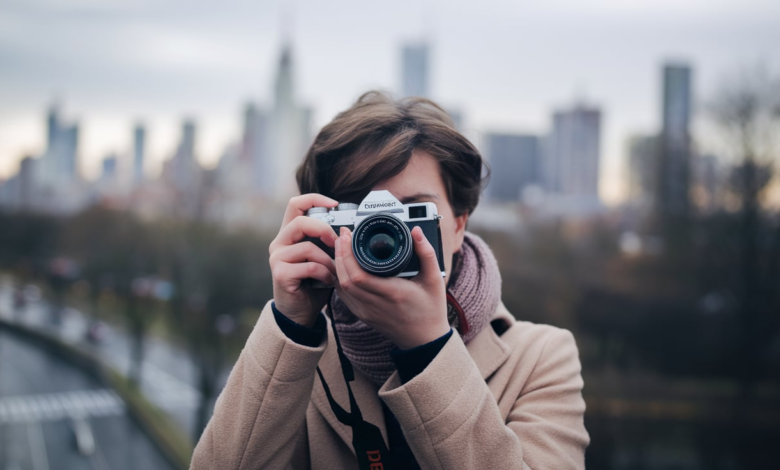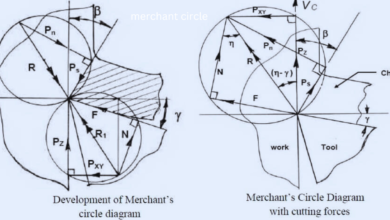Discover the Best Digital Camera for Your Photography Journey

A digital camera is one of the most important tools for anyone who loves photography. Whether you are a beginner or an experienced photographer, choosing the right digital camera can make a big difference in the quality of your photos. Today, digital cameras come in many different types and features, so it’s important to know what to look for when selecting one. Whether you’re capturing family memories, taking professional photos, or simply enjoying a hobby, a good digital camera will help you achieve the best results.
When shopping for a digital camera, you might feel overwhelmed with all the options available. From compact point-and-shoot cameras to professional DSLR models, it can be difficult to decide which one is best for your needs. The key is understanding what features are most important for your style of photography. For example, if you’re looking for something simple and easy to use, a point-and-shoot camera might be perfect. On the other hand, if you want more control over your photos, a DSLR or mirrorless camera could be the better choice. Understanding the different types of digital cameras and their features can help you make a smart decision that fits your photography goals.
What is a Digital Camera and How Does It Work?
A digital camera is a device that captures images in digital form. Unlike film cameras, which use physical film to record pictures, digital cameras use sensors to capture light and convert it into digital data. This data is then saved to a memory card. The key component of a digital camera is the image sensor, which detects light and color to create a photo. The camera also includes a lens to focus light and control the sharpness of the image. Most digital cameras have a screen to preview pictures, adjust settings, and review images after taking them. Digital cameras come in different types, such as point-and-shoot, DSLR, and mirrorless cameras, each offering different levels of control over the photography process.
Top Features to Look for in a Digital Camera
When shopping for a digital camera, there are several important features to consider. First, the resolution, measured in megapixels, is crucial for image quality. Higher megapixels usually mean clearer, sharper images. The lens is also essential, as it determines how well the camera can zoom and focus. Another important feature is the camera’s autofocus system, which ensures your photos are clear and sharp. Additionally, the image sensor size impacts how much light the camera can capture, affecting how well it performs in low light. Other features, such as image stabilization, burst shooting, and wireless connectivity, can add convenience and improve your experience. Don’t forget about the camera’s battery life, as a longer-lasting battery is essential for long shooting sessions.
How to Choose the Right Digital Camera for Beginners
Choosing the right digital camera for beginners can feel overwhelming, but it doesn’t have to be. The most important thing is to pick a camera that’s easy to use and offers automatic modes to help you get started. A point-and-shoot camera is a great option for beginners because it’s lightweight, compact, and simple to operate. These cameras often have automatic settings that adjust for different lighting conditions, so you don’t need to worry about manually adjusting settings. Another option for beginners is a mirrorless camera, which offers more control over your photos without being as bulky as a DSLR. Look for a camera that feels comfortable in your hands and has good customer reviews, especially for beginners.
Best Digital Cameras for Family Photography
For family photography, you need a digital camera that is both easy to use and versatile. Point-and-shoot cameras are a great option for families because they are simple, lightweight, and portable. Cameras like the Canon PowerShot series or the Nikon Coolpix series offer excellent image quality while being easy to carry around. However, if you want more control over your photos, a DSLR camera such as the Canon EOS Rebel or Nikon D3500 would be perfect. These cameras offer manual controls, allowing you to adjust settings for different lighting and creative shots. Additionally, cameras with good video recording features are also important, as capturing family moments on video is just as important as still photos.
Why Digital Cameras are Better Than Smartphones for Photography
While smartphones are convenient, digital cameras still offer significant advantages when it comes to photography. Digital cameras typically have larger sensors and better lenses, resulting in higher image quality, especially in low-light conditions. A dedicated digital camera also offers more zoom power and better image stabilization, making it easier to capture sharp, detailed photos from a distance. Unlike smartphones, digital cameras allow for more manual control, giving you the flexibility to adjust settings like aperture, shutter speed, and ISO for the best results. Additionally, digital cameras often offer better battery life, allowing you to take more photos during long days of shooting without needing to recharge.
Point-and-Shoot vs. DSLR: Which Digital Camera Should You Choose?
When choosing between a point-and-shoot camera and a DSLR, it comes down to what kind of photography you want to do. Point-and-shoot cameras are small, lightweight, and easy to use, making them perfect for casual photographers or beginners. They come with automatic settings that adjust for lighting and focus, so you don’t need to worry about technical details. On the other hand, DSLR cameras offer more manual control over your photos, making them ideal for people who want to dive deeper into photography. DSLRs allow you to change lenses, control exposure, and take high-quality photos in various conditions. If you want simplicity, a point-and-shoot is a great choice. If you want more control and higher image quality, consider a DSLR.
How to Maintain Your Digital Camera for Long-lasting Performance
To ensure your digital camera performs well for years, it’s important to take good care of it. First, always keep your camera clean. Use a soft cloth to wipe the lens and screen to remove fingerprints or dust. Regularly check the battery and memory card to ensure they are in good condition. Avoid exposing your camera to extreme temperatures or moisture, as this can damage the internal components. When you’re not using the camera, store it in a protective case to keep it safe from scratches and impacts. Additionally, periodically update your camera’s firmware to keep it working smoothly and take advantage of new features or fixes.
The Best Digital Cameras for Travel: Compact and Powerful
When traveling, you need a digital camera that’s easy to carry but still powerful enough to capture great photos. Compact digital cameras are a perfect choice because they are lightweight and portable, fitting easily into a backpack or pocket. Popular travel cameras, like the Sony RX100 series or the Canon PowerShot G7 X, offer excellent image quality and zoom capabilities in a small package. If you want even more control over your shots, consider a mirrorless camera like the Sony Alpha series. These cameras offer interchangeable lenses and greater flexibility while still being compact. Be sure to choose a camera with good battery life and image stabilization, as these features will help you take clear and sharp photos while on the go.
Top Tips for Capturing Stunning Photos with Your Digital Camera
To capture stunning photos with your digital camera, it’s important to understand the basics of photography. One of the most important tips is to pay attention to lighting. Natural light can dramatically improve the quality of your photos, so try to take pictures during the golden hours, either early in the morning or late in the afternoon. Another tip is to focus on composition by following the rule of thirds. Imagine dividing your image into nine equal parts, and place important elements along these lines or at their intersections. Don’t be afraid to experiment with different settings on your camera, such as adjusting the aperture or shutter speed. Finally, always keep your camera steady, and use a tripod if necessary to avoid blurry images.
Understanding Digital Camera Lenses: A Guide for Beginners
Lenses are a critical part of any digital camera, and understanding how they work can help you improve your photography. Lenses determine the field of view, focus, and zoom of your camera. A standard lens, often around 50mm, is great for general photography and portraits. Wide-angle lenses, typically below 35mm, are perfect for capturing landscapes or architectural shots, as they allow you to capture more of the scene. Telephoto lenses, which have longer focal lengths, are ideal for photographing distant subjects, like wildlife. When choosing a lens, consider the types of photos you want to take. Some cameras come with interchangeable lenses, while others, like point-and-shoot cameras, have fixed lenses.
Conclusion
In conclusion, selecting the right digital camera is important for achieving the best photography results. Whether you’re a beginner, a traveler, or an experienced photographer, understanding the features of digital cameras and how to choose the right one can make a big difference. From point-and-shoot models to DSLRs and mirrorless cameras, there are many options that cater to different needs. By considering factors like image quality, lens options, and camera size, you can find the perfect camera for your photography goals.
Remember to maintain your digital camera by keeping it clean and storing it properly. Regularly update the firmware and take care of the battery to ensure long-lasting performance. With the right camera and the right care, you’ll be able to capture amazing photos for years to come.
FAQs
Q: What is the best digital camera for beginners?
A: A point-and-shoot camera or entry-level DSLR is perfect for beginners.
Q: How do I choose the right lens for my digital camera?
A: Choose a lens based on your photography needs—wide-angle for landscapes and telephoto for distant subjects.
Q: What is the difference between a DSLR and a mirrorless camera?
A: DSLRs have a mirror to reflect light to the viewfinder, while mirrorless cameras are more compact without a mirror.
Q: Can I use my digital camera to record videos?
A: Yes, most digital cameras, especially mirrorless and DSLRs, offer video recording features.
Q: How can I improve my photos with a digital camera?
A: Experiment with lighting, focus on composition, and try different camera settings for better results.



